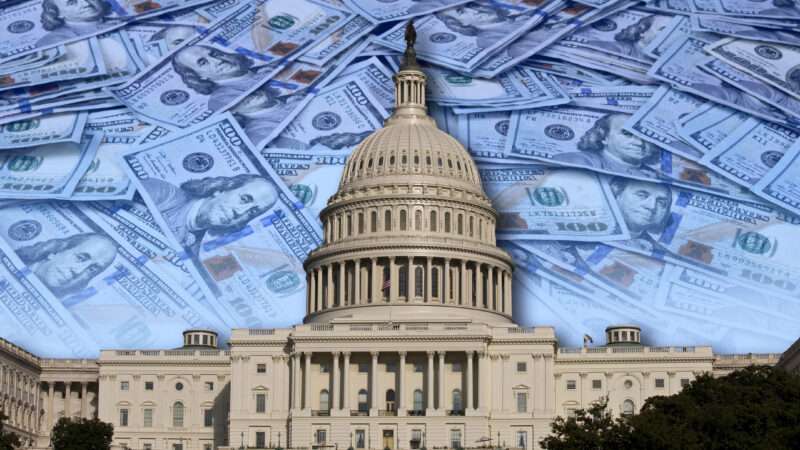
There's much talk today about the need for a fiscal commission. The House Budget Committee held a hearing about it a few weeks ago. Pundits are Substacking about whether using the approach to put federal finances on a sustainable path is a good or a bad idea. And according to a recent polling, voters support the idea of a commission.
Great. But that shouldn't obscure the fact that a commission would be the result of our legislators constantly acting like children by refusing to be good stewards of taxpayers' dollars, which is their No. 1 job. There are also a few important things needed to make such a commission successful.
In the last 50 years, when the budget process has been in place, Congress has managed only four times to pass a budget on time and through the regular process. Seventeen times, members of Congress haven't bothered to pass a budget at all. That hasn't stopped them from spending money they didn't have, or from making promises to voters they wouldn't be able to fulfill. I doubt I need to remind you that it's gotten worse. In the last half-decade, Congress added $5 trillion to the already elevated and growing federal debt with no plan for repayment.
Nor should I need to remind this column's readers that government interest payments are growing quickly, propelled by higher interest rates applied to an expanding debt level. That's the result of years of excuses that interest rates would remain historically low.
While you might see how legislators chose to believe that inflation and high interest rates were things of the past, there's no excuse for ignoring the upcoming insolvency of programs like Medicare and Social Security. This looming calamity has been warned of for decades in government reports and scholarly publications.
To be sure, the insolvency dates might change with new projections, but what has been constant is the knowledge that around the 2030s, Social Security's trust fund will dry out, triggering a reduction in benefits across the board of about 20 percent. To avoid cutting benefits, Congress could decide to borrow the money—at least $116 trillion of it—over the next 30 years. That option has been right there, written in all its red-ink glory, in the tables of reports produced by the Congressional Budget Office (CBO).
So, yes, Congress knew this was coming. And yet it did nothing. Making matters worse, Republicans have abandoned the mantle of at least paying lip service to fiscal responsibility by refusing to talk about entitlement reform.
Now that we are clear about a bunch of delinquents who don't want to do their jobs, let's consider a fiscal commission.
At the heart of the commission's charge must be a commitment not just to reduce some deficits but to put the government back on a sustainable track. As my colleague and former CBO Director Keith Hall convinced me, the commission will fail if it doesn't have a clear target from the start. Then it will need to be both transparent and accountable by operating in the open, making its findings and deliberations available to the public, and thereby fostering an informed debate about the choices facing the nation.
The commission could be established through legislation mandating that Congress consider any resulting proposals on a fast-track basis, with limited opportunities for amendment and delay. Such mechanisms have been used successfully in the past with military-base closure commissions and trade agreements, and they could be adapted to the task of fiscal reform.
The commission's work would inevitably confront entrenched interests and face stiff opposition from those who benefit from the status quo. It would therefore need to be composed of individuals capable of rising above partisanship and special interests to act in the nation's best interest. Members of Congress might themselves want to sit on the commission, though few of them fit these requirements, considering who got us into this mess in the first place.
In short, a fiscal commission represents a pragmatic approach to a problem that has for too long been mired in politics and short-term thinking. It offers a pathway out of the fiscal morass, provided it is empowered to act, and its recommendations are taken seriously.
For Congress, which has shirked its responsibilities, the commission offers a chance to redeem itself by enabling reforms that might otherwise never see the light of day. In this way, the commission does not usurp Congress' role but rather complements it, providing the impetus needed for genuine fiscal reform.
COPYRIGHT 2023 CREATORS.COM.
The post The U.S. Needs a Fiscal Commission Because Congress Won't Do Its Job appeared first on Reason.com.







